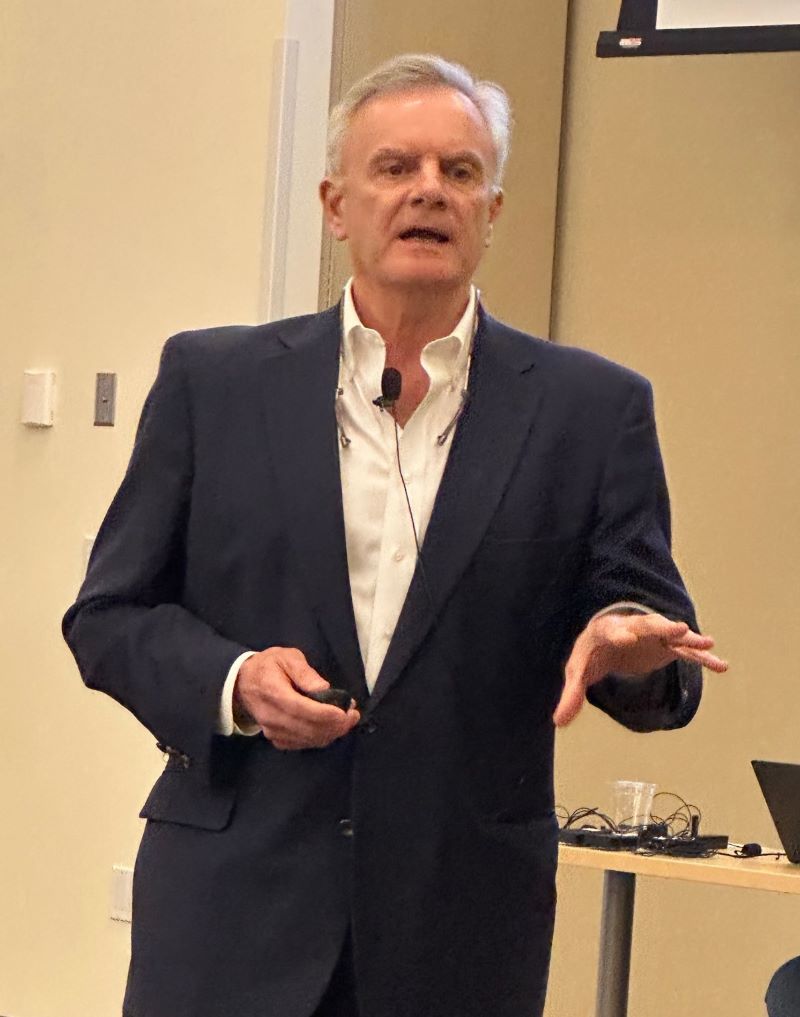Addressing attendees at AHFA summit, Michael Sullivan says compliance must be owned at the top of an organization and embedded into its culture
Michael Sullivan, partner with Womble Bond Dickinson, urged furniture industry leaders to view compliance not as a box-checking exercise, but as a strategic driver of growth, innovation and consumer trust. Speaking to manufacturers at AHFA’s August Regulatory Summit, he outlined the rapidly evolving regulatory environment and stressed that compliance programs must be dynamic, proactive and integrated into every level of a business.

Sullivan noted that regulatory complexity has increased dramatically in recent years. From chemical regulations (PFAS, formaldehyde and others) to new fire safety standards in Europe, supply chain transparency, digital reporting, labeling mandates, tariffs and sustainability requirements, companies face more scrutiny from more directions than ever before. Compliance failures can bring fines, recalls, reputational damage or even criminal liability for executives.
He went on to point to key issues that suppliers should be mindful of.
+ Chemicals: PFAS regulations remain unsettled, while formaldehyde and other substances continue to draw attention. Emerging chemicals of concern, such as toluene, are now on regulators’ watch lists.
+ Safety Standards: Flammability and fire safety requirements are expanding in markets such as the U.K. and EU, and CPSC updates — like new recliner standards — underscore the ongoing importance of product safety.
+ Labeling and Reporting: States are adopting divergent labeling requirements, while digital reporting increases expectations for detail and speed.
+ Supply Chain: Global sourcing changes, whether driven by tariffs or costs, introduce new compliance challenges that must be managed from raw material to finished goods.
+ Sustainability: Environmental and packaging regulations differ across countries, requiring companies to harmonize practices while demonstrating transparency.
Sullivan highlighted real-world cases where failures to report in a timely manner resulted in multimillion-dollar fines and, in some cases, prison sentences for executives. He emphasized that robust compliance systems must detect problems early, trace issues back through the supply chain and enable timely corrective action.
Far from being a burden, Sullivan argued that strong compliance programs can:
+ Improve product quality and consumer trust.
+ Strengthen supplier relationships.
+ Provide critical data for pricing, risk management and insurance.
+ Enable faster response to market changes, giving companies a competitive edge.
Sullivan stressed that compliance must be owned at the top of an organization and embedded into company culture. Programs should include clear accountability, regular audits, milestone reviews and the use of technology — including AI and digital tools — for better data collection and reporting. Importantly, compliance should be treated as a continuous process that adapts as regulations and markets evolve.
Sullivan closed by reminding attendees that consumers place deep trust in furniture brands because their products become part of people’s homes and families. Protecting that trust through rigorous compliance is not just about avoiding penalties — it is the foundation for long-term profitability, growth and reputation in the industry.

 by
by 


